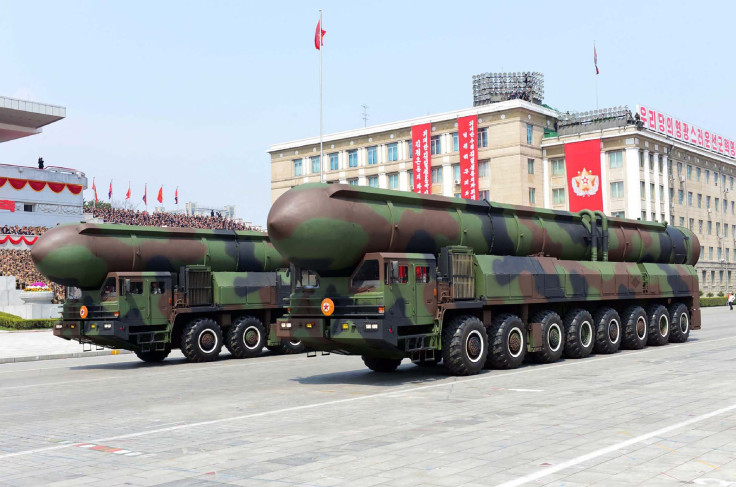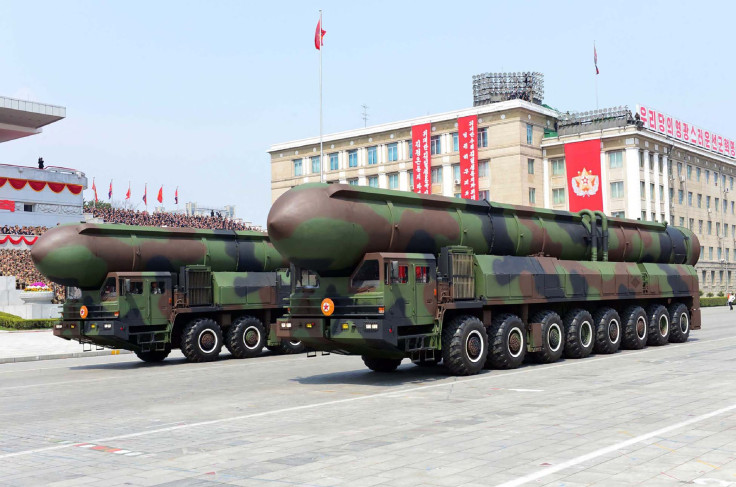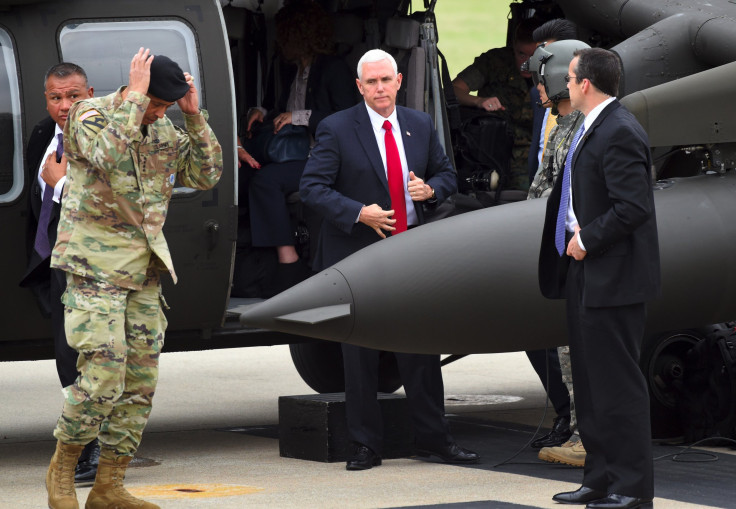Nuclear War With North Korea Is Highly Likely, Voters Say

The United States' tenuous relationship with North Korea is on the minds of most Americans, according to a new poll. A Rassmussen Reports poll released Thursday found that 57 percent of U.S. voters believe a nuclear war with North Korea will take place before the end of the century.
Twenty-four percent consider it very likely, while 32 percent said it is unlikely to occur within the next 80 years. Only five percent of voters said it was not at all likely.
Tensions have increased between North Korea and the U.S. in recent days, leading Vice President Mike Pence to declare that the country’s long-standing policy of “strategic patience” was over during a visit to South Korea in April. The policy of “strategic patience” is hard to pin down, but in general, refers to the U.S.’s decision to wait patiently for North Korea to denuclearize on its own.
Read: Can North Korea's Nuclear Missiles Reach The United States?
“Since 1992, the United States and our allies have stood together for a denuclearized Korean Peninsula,” Pence said during a news conference in Seoul. “We hope to achieve this objective through peaceable means, but all options are on the table.”

The U.S. and North Korea have been repeatedly lobbing warnings back and forth about impending military action. After reports emerged that North Korea was planning to conduct additional missile tests, the U.S. warned it would launch a pre-emptive strike if they got wind of any concrete plans. North Korea, for its part, said it would “hit the U.S. first” with nuclear artillery if it became aware of an imminent strike.
North Korea also fired back after the U.S. installed a missile defense system in South Korea. The Terminal High-Altitude Area Defense system, or THAAD, would ideally intercept missiles launched by the North.
“By relentlessly bringing in a number of strategic nuclear assets to the Korean peninsula, the U.S. is gravely threatening the peace and safety and driving the situation to the brink of a nuclear war,” North Korean officials said in a statement, according to KCNA. “This has created a dangerous situation in which thermos-nuclear war may break out at any moment.”
Satellite images emerged of North Korean infrastructure being erected on artificial islands in the Yellow Sea. It was unclear what, exactly, the mysterious construction was for, but experts said it was likely going to be used for some sort of military purpose, including missile launches.
Read: Heart Breaking Video Of Defector Shows What Life Is Like In North Korea
In perhaps one of the most heated moments yet, North Korea accused U.S. officials of plotting to kill Kim Jong Un with a biochemical weapon. In a report released by state news outlet Korean Central News Agency (KCNA), North Korea alleged that the CIA, alongside a North Korean citizen and South Korean officials, attempted to kill the nation’s leader at a recent public event. No media outlets were able to verify the claims.
“This heinous crime, which was recently uncovered and smashed in the Democratic People’s Republic of Korea is a kind of terrorism against not only the DPRK but the justice and conscious of humankind and an act of mangling the future of mankind,” the ministry of state security said in a statement.
As relations between the two nations have become increasingly strained, President Donald Trump has voiced his own thoughts about a possible impending collision with North Korea.
“There is a chance that we could end up having a major, major conflict with North Korea,” Trump told Reuters in April. “We’d love to solve things diplomatically but it’s very difficult.”

© Copyright IBTimes 2024. All rights reserved.












